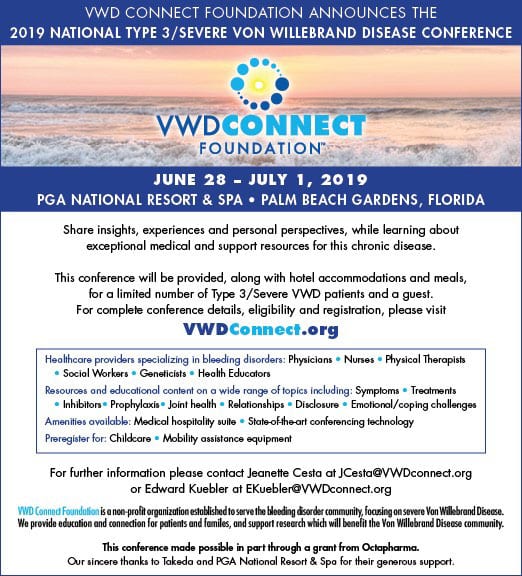Von Willebrand disease is the most common inherited blood clotting disorder that affects humans. The disorder can also be acquired. Although it is considered common, the majority of cases do not cause noticeable symptoms and go undiagnosed. The number of clinically significant cases of von Willebrand disease is much rarer: about 1 in 10,000. The disease is caused by mutations affecting the vWF gene, which is responsible for von Willebrand factor, which plays a critical role in the process of blood clotting.
The vast majority of cases are classified and type 1 or type 2 von Willebrand disease, and the symptoms of these types are minor if they are present at all. However, there is also a much rarer and serious form called type 3. This is the most severe form of the disease and these patients have practically no von Willebrand factor in their bodies. The risk of bleeding in this form is significant and is comparable to severe cases of hemophilia A. Along with symptoms that may appear in the more common forms, such as nosebleeds, bleeding gums, or easy bruising, type 3 patients are also vulnerable to severe internal bleeding, including bleeding into joint spaces, which can be debilitating. Treatments used for the more common forms of the disease are not effective in von Willebrand disease type 3. To learn more about this illness, click here.

The VWD Connect Foundation has grown to be a valuable resource for patients since its founding in 2017. It is focused on helping patients affected by severe forms of von Willebrand disease. To further this mission, the organization has been in the midst of organizing its very first patient conference.
The event will span four days and three nights and is intended to serve as an opportunity for patients to establish critical connections to caregivers and other members of the bleeding disorder community. The event will also include a number of educational sessions that will cover a variety of essential topics, such as diagnosis, symptoms, treatment options, and psychosocial challenges.
The event will take place from June 28th to July 1st, 2019. For more information about this event, click here.


